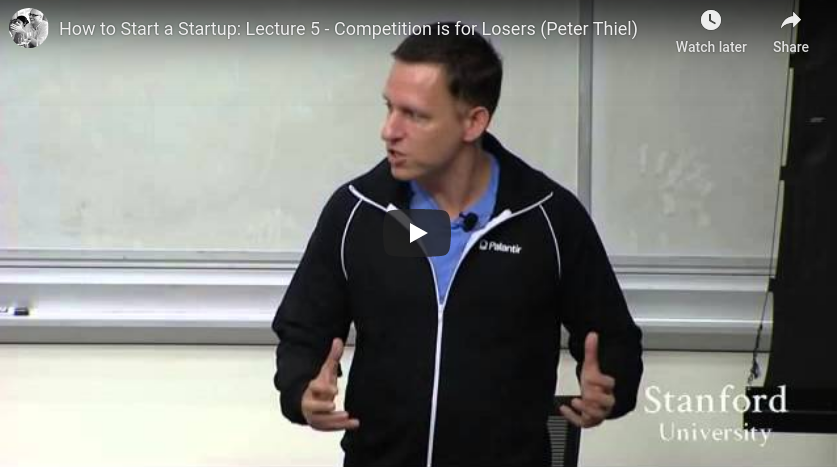I don’t always agree with Peter Thiel. In fact, I often disagree with him but I do find that his thoughts and ideas provoke me to think deeply. Disagreements force me to chip away at what I believe and forge it into something ever more crisp and clean. This blog entry is a short analysis of the things that Thiel says in this recorded talk. Here are some things that I agree and disagree with:
- I agree with his basic premise that companies and/or technologies creates X dollars in value, and capture %Y dollars.
- I agree that X and %Y are completely independent variables
- I’d add that per marginal utility and subjective value theory, there’s a lot wiggle room.
- Sometimes companies capture more dollars (%Y) than their product creates (X). We geberally call these scams. Other times, the products generate value in use, but not as much in exchange. Other times, they have great value in exchange, but not much value innuse.
- Sometimes products generate tons of value (X, but capture very few or no dollars (%Y). These companies fail.
- Why Economists Never Agree on Anything? gives some cool examples of how marginal utility and subjective value theory play a role in influencing %Y
- There’s a saying – it’s not worth what it’s worth, it’s worth what they’ll pay
- There’s a saying among hedge fund people – why did you charge them 2 and 20? Because I couldn’t charge them 3 and 30
- While I like the X and %Y framework, it lacks bottom line costs. There needs to be a C, and C needs to be lower than %Y at some point in the future or a company will fail
- I’m from Northeast Ohio which has a lot of old businesses which struggle along constantly balancing C and %Y and X, creating and capturing just enough value to stay alive. It’s kind of depressing actually, but necessary.
- I agree that companies often generate the most value from integration, not necessarily vertical integration like he says but integration. In fact, I think integration and network effect are a huge part of why open source companies work.
- Products like Linux distros, Satellite Server, OpenShift and Ansible all work well because most of the difficulty in using them comes from the integration
- All open source projects generate value for the user, but with software that requires a lot of integration work, more value can be generated and some can be captured by making the integration easier for end users. It’s a more ethical way to make money, IMHO.
- Products like Linux distros, Satellite Server, OpenShift and Ansible all work well because most of the difficulty in using them comes from the integration
- I disagree, philosophically, with the idea of proprietary software. I’m not sure there’s much more there. I think proprietary
- I think his analysis of how monopolies and super competitive companies lie, which makes it hard for us to tell, is quite interesting.
- I think he’s using the world monopoly to describe what Warren Buffett calls moats. I think Peter likes being provocative, but essentially he’s right a company must be able to durably produce and capture value.
- Personally, I prefer velocity and offense, versus defense (monopolies, moats). I personally believe that if your business is to build new technology and you do it well, you will durably create and capture value. IMHO, culture and model are critical. This is why Red Hat has succeeded.
- Peter’s description of monopolies does not apply well to Red Hat or open source companies, but he is biased to Silicon Valley culture
- I think network effect works well in Open Source. The RHEL and OpenShift ecosystems are essentially network effect.
